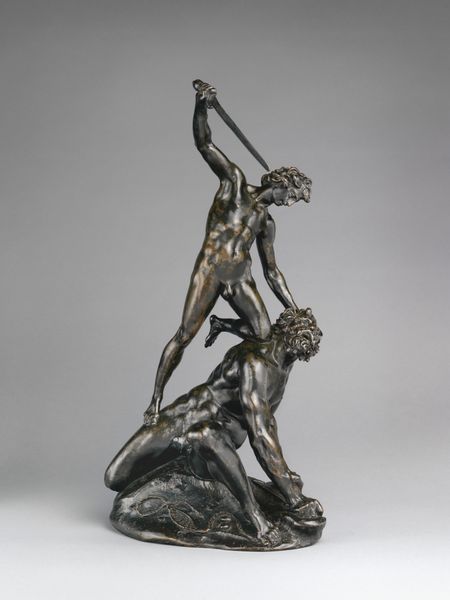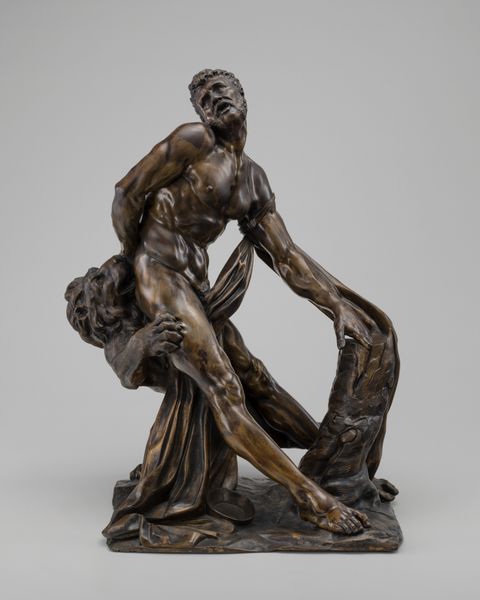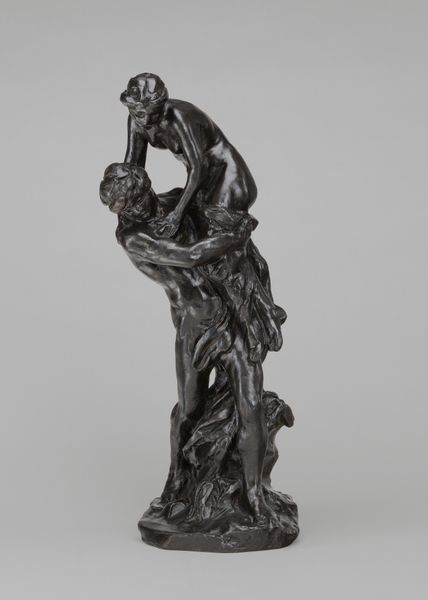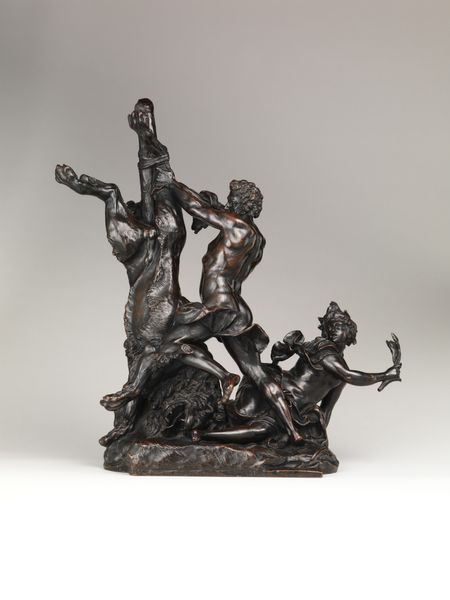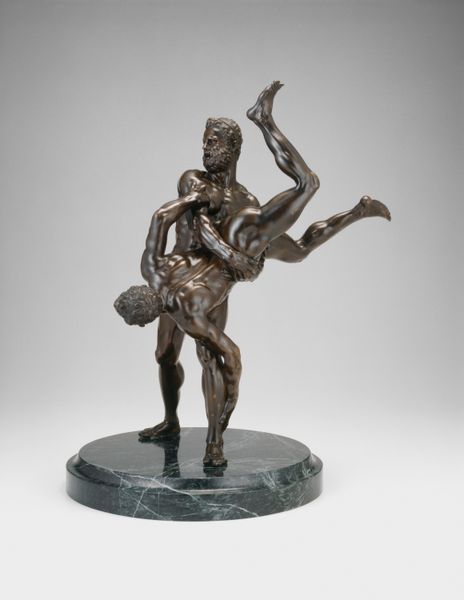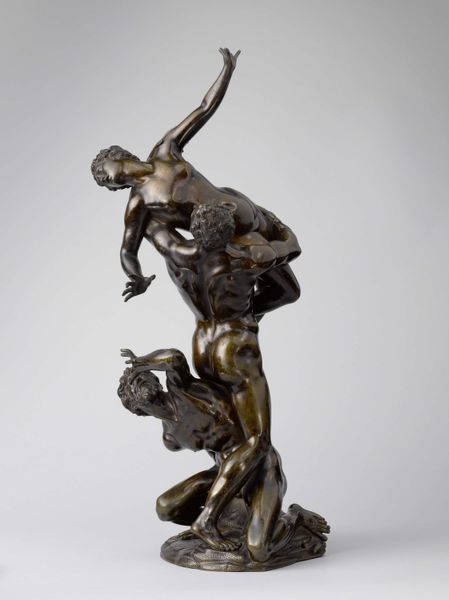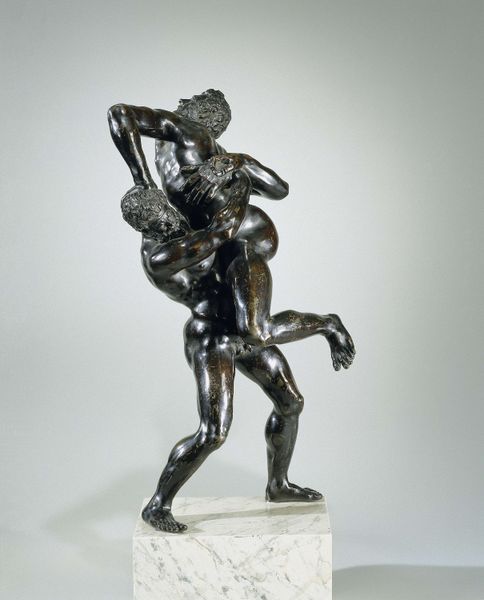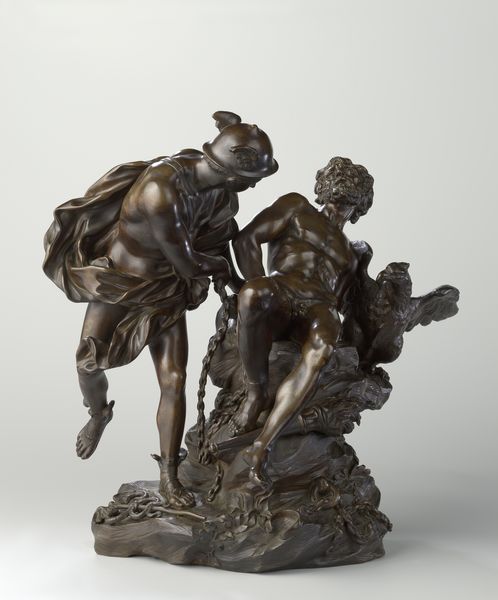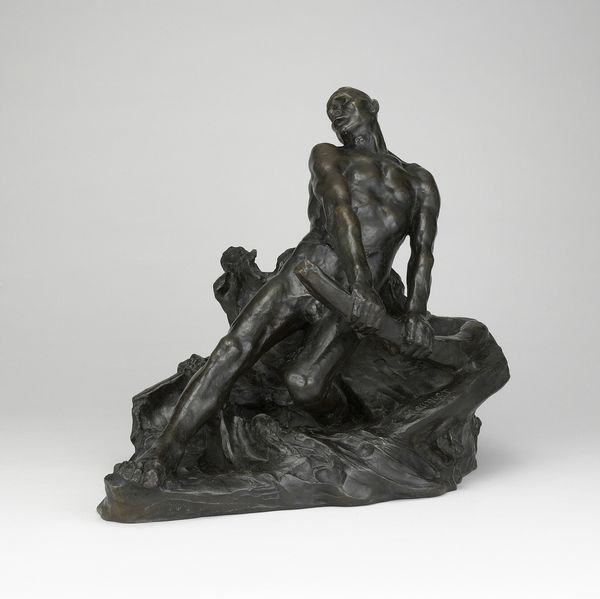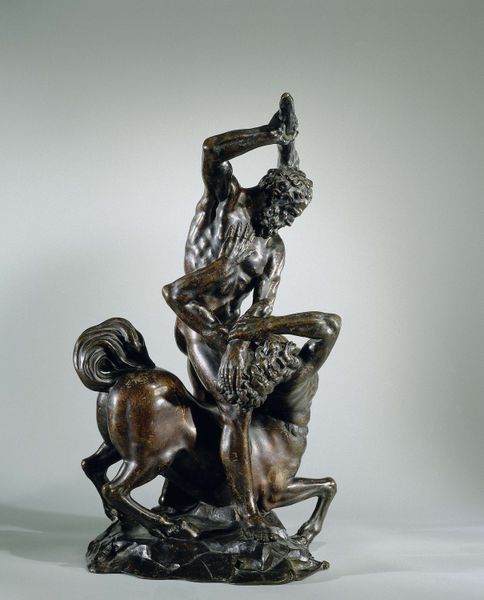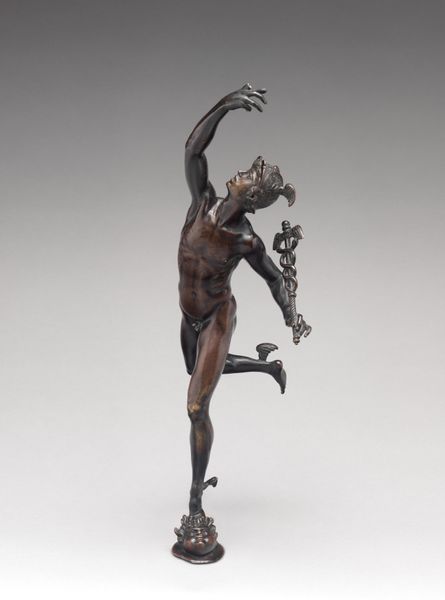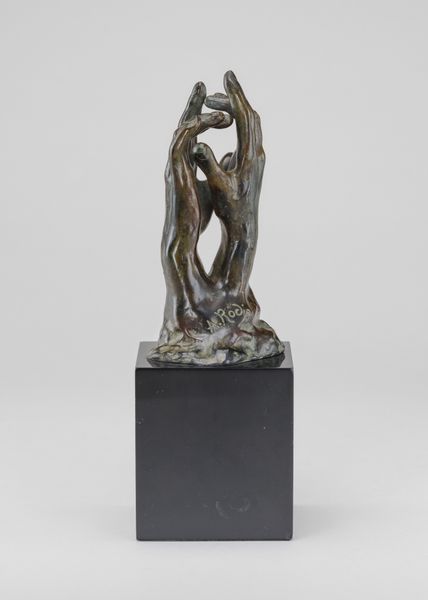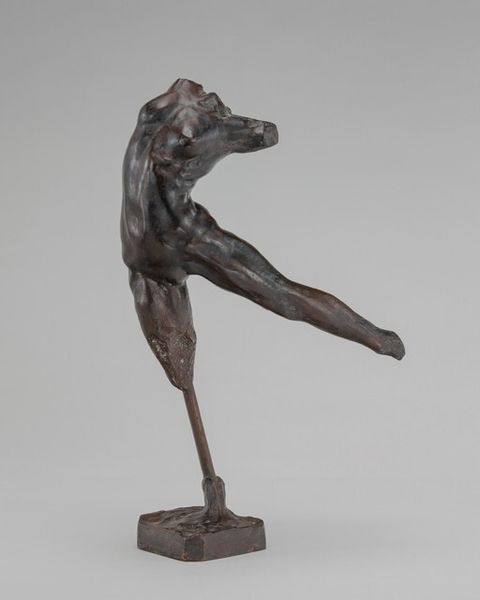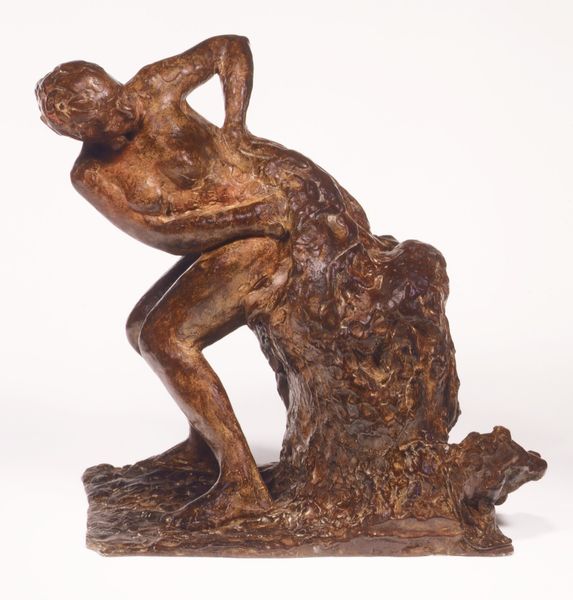
Dimensions: 41.9 × 28.5 × 19.7 cm (16 1/4 × 11 1/4 × 7 3/4 in.)
Copyright: Public Domain
Editor: This bronze sculpture, "Hercules and Lychas," likely created between 1850 and 1900 by Antonio Canova, portrays what looks like a very violent episode. The way Hercules is contorting Lychas' body evokes pain and struggle. What social and historical narratives do you see at play within this sculpture? Curator: That's an astute observation. While aesthetically rooted in neoclassicism and academic art, Canova's work reveals deeper tensions when examined through the lens of power and mythology. Hercules, a symbol of masculine strength, is here the perpetrator of what looks to me like brutal violence. How does the heroic narrative mask or even justify acts of domination, particularly when read through the lens of, say, postcolonial theory and the Western obsession with Classical forms? Editor: That’s a great point. I was so focused on the immediate action, but considering the broader context, it almost seems to celebrate that power imbalance, the dominance of one figure over another. It makes me wonder what kind of cultural anxieties were present when this was created, anxieties the work maybe tries to subdue. Curator: Precisely. Canova likely considered himself apolitical; in his lifetime, Neoclassicism was seen as the elevated style of the day. But to avoid examining artworks and their intentions in context--especially heroicized ones, is a loss for us all. Who is missing from the historical narratives portrayed? Whose voices were suppressed in favor of this grand masculine triumph? Editor: It definitely makes you reconsider the narratives we’re so used to seeing and questioning where these ideas about heroism and power originate from. Curator: Indeed. By examining the context and implications of such artworks, we begin to question not just their aesthetic value but their place within broader societal structures of inequality. That way we become better observers and more responsible narrators. Editor: Absolutely. I see so many potential topics to investigate further, so that I might start questioning dominant cultural forces at play here.
Comments
No comments
Be the first to comment and join the conversation on the ultimate creative platform.
